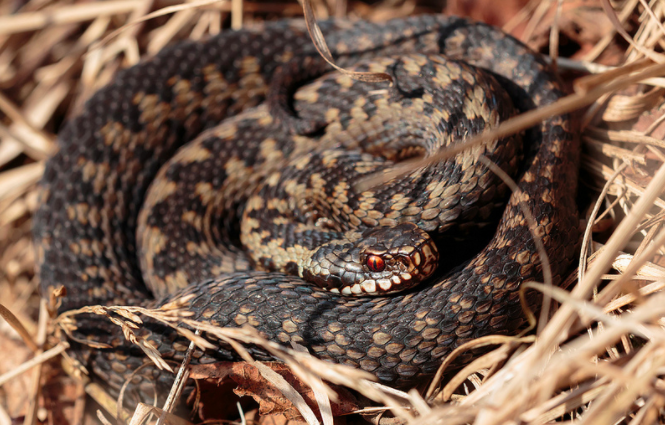On Sunday, on the side of a rural ridge path that cut through fields of maize and newly planted papaya trees, I watched a man kill a venomous adder. He threw large rocks to stun the snake, and then used his heel to crush its head. Even after he stopped, the snake’s body kept moving, dragging its destroyed head behind it.
I had to look away; I’m not good with snakes, and I’m not good with killing. I averted my eyes as I walked by its still-writhing body. The man was accompanied by a woman, and she laughed at my obvious discomfort; no doubt I gave them both a hilarious story to tell friends later that day, the muzungu (foreigner) who looked on in squeamish dismay as a deadly creature was dispatched.
In the same moment that I was watching this farmer kill this snake, I was formulating a plan in the event that I was bitten by it. My colleague Colin, the fittest of us, would run down to Rwinkwavu (the Ministry of Health’s hospital for the Kayonza district), which our organization, Partners In Health/Inshuti Mu Buzima (PIH/IMB), supports) for help. Hannah, the other hiker, would help me down the ridge to the hospital, not more than a kilometer away. Adders are especially deadly, I later learned, because their fangs are significantly longer than your average viper, getting the venom closer to your circulatory system and therefore moving the venom more quickly through your bloodstream. We have antivenom at our hospitals, which is not commonly stocked in public facilities in Rwanda; still, it would be difficult to get to a hospital more than a few kilometers away in time for treatment. Just a few weeks ago we were able to save a little girl who had been bitten by a viper; if she hadn’t lived near a PIH/IMB-supported facility, she certainly would have died.
February is snake season in Rwanda. After the harvest, farmers burn their fields, driving the snakes out. In rural Rwanda, encountering a venomous snake as you go about your daily business is not uncommon. They have no mercy for snakes here, no mercy for these deadly creatures that can so easily cut short the life of a farmer or her children. As I, still so fundamentally unfamiliar with such daily life-or-death decisions, winced at the violence, averted my eyes – as I held onto the luxury that life is not brutal – this farmer disposed of a creature that could have easily killed him, his wife, his daughter along a well-worn path. He was protecting his own. I was reminded of the struggle.




